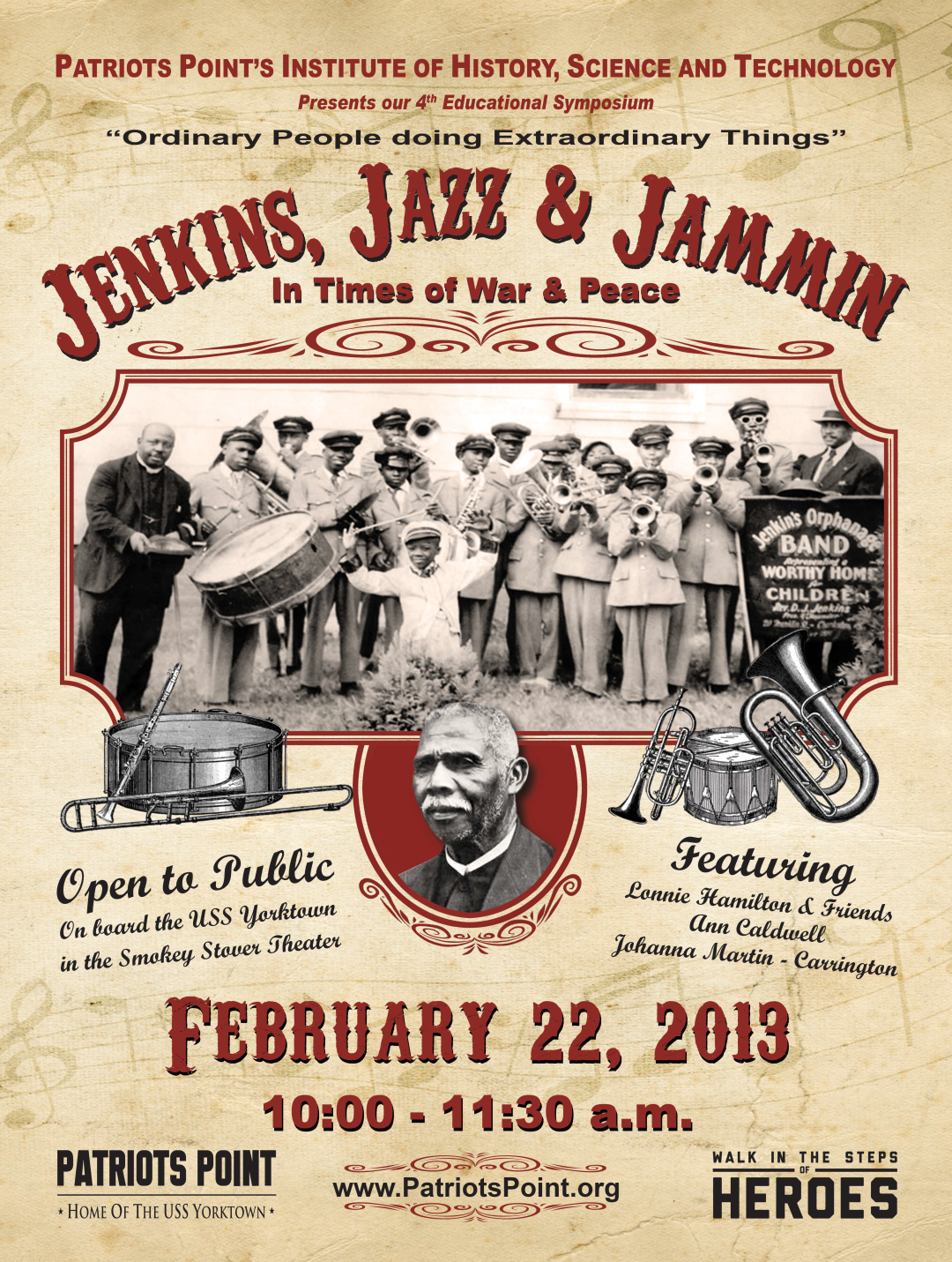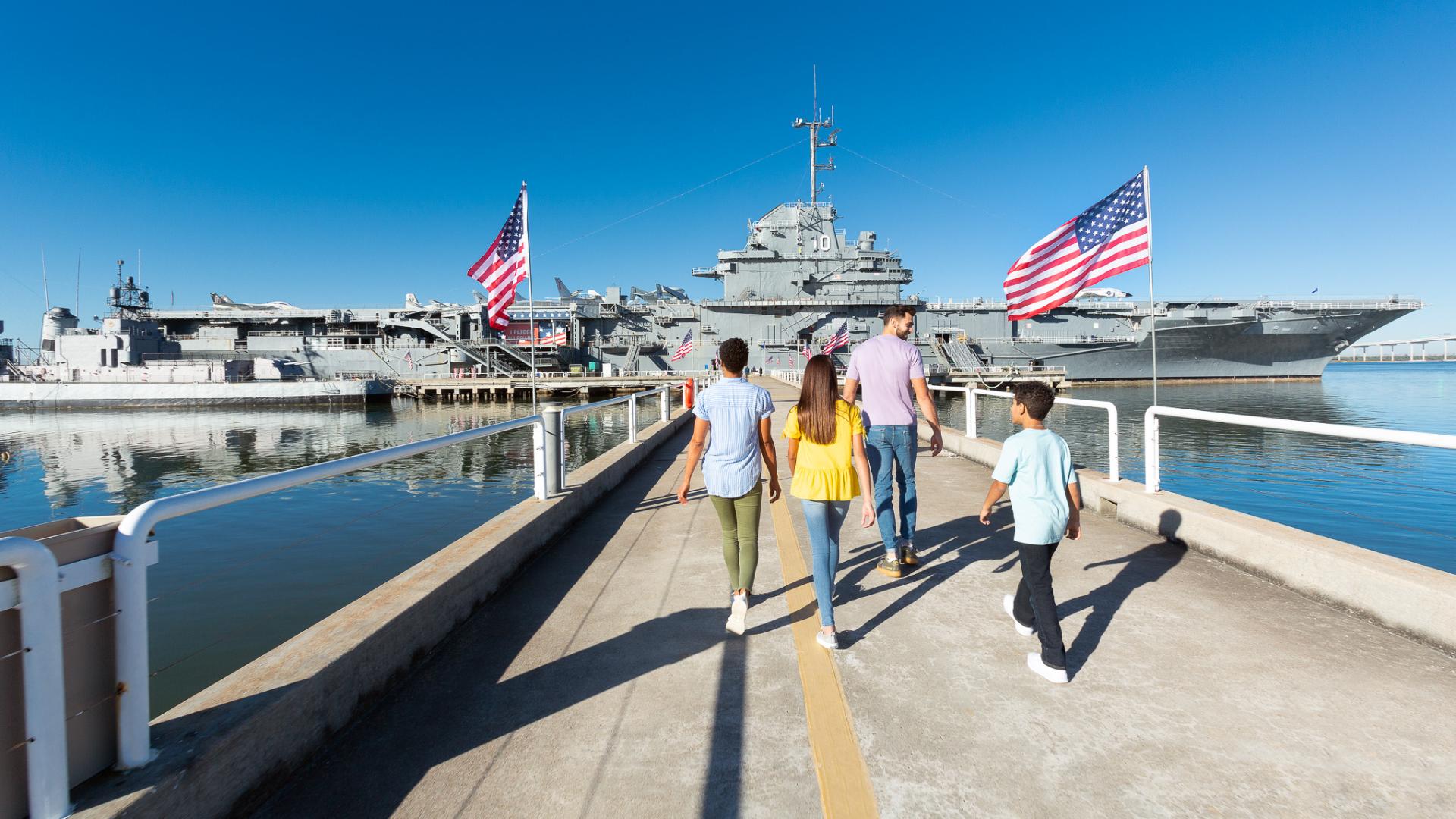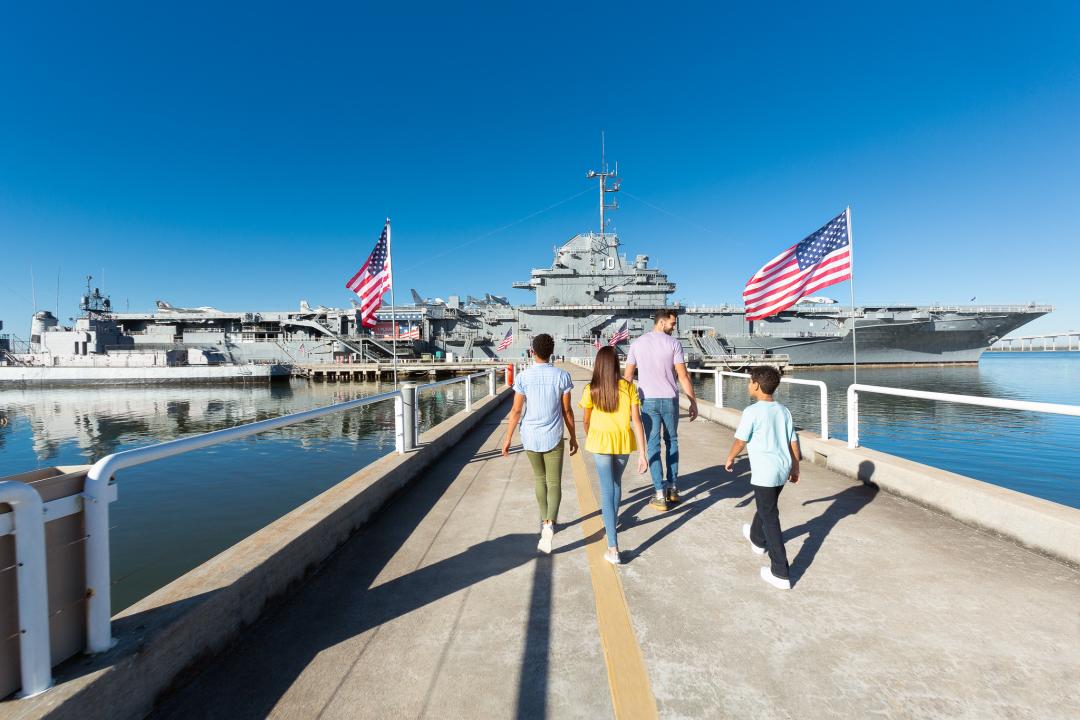
On Friday, January 25, Patriots Point Naval & Maritime Museum will host a special educational symposium, “Internment in Times of War.”
Moderated by journalist Warren Peper, this educational program will begin at 10 a.m. in the USS Yorktown’s Smokey Stover Theater and will provide guests with an opportunity to learn about the challenges internees and prisoners of war faced – and ultimately overcame – during conflicts ranging from WWII and the Holocaust through Korea and Vietnam.
The stories of the distinguished panel of speakers are sure to inspire and captivate – including the experiences of Japanese American Mary Murakami, who was forced to evacuate to an internment camp in the Arizona desert during WWII.
BLOSSOMS IN THE DESERT
Mary Murakami was just 14 years old when the news came – Japanese forces had attacked Pearl Harbor and the United States was now at war.
“We lived in San Francisco Japantown and could not believe that war had broken out that fateful day in December until the Army surrounded our neighborhood,” she recalled in the book Blossoms in the Desert. “After that day, the curfew affected our family by curtailing the area of travel… Finally, in April, I had to leave junior high school.”
During this time, hundreds of thousands of Japanese Americans were forced to sell or leave their homes on very short notice and were sent to assembly centers and on to internment camps during WWII.
“Executive Order 9066 happened in February, stating that evacuation will occur,” Murakami said. “We had about a week’s notice to pack up what you could carry and report to the assembly center. I left my favorite dolls, my piano… In my suitcase, I had an autographed book from my friends and my clothes, and that was about it.”
Mary and her family were evacuated from San Francisco, California and sent to an old race track in San Bruno, California – Tanforan Assembly Center. There, families were forced to sleep on mattresses they made out of hay and live in horse stalls.
Murakami recalled, “All they did to the horse stalls was wash them out and whitewash the walls – the odor was still there. My family was lucky because we were one of the last groups to be evacuated so we were put in a room in barracks that they built in the inner track.”
After Tanforan, Mary and her family were sent to Topaz Internment Camp in Topaz, Utah, where they lived behind barbed wire and were under constant surveillance by armed guards. Mary and her family lived in small, shared quarters.
“My parents and my brother were in one room and the girls were in the other. It was a tough life, especially for our parents, until we settled into a routine,” she said.
No longer able to share family meals, Mary ate with her friends in a mess hall and slept on military cots.
“You had to walk to the latrine,” she recalled. “You had no privacy. If we said we didn’t like being cooped up in this camp – behind barbed wires – [our parents] would say, ‘this is where the government put us;’ and so, we had to make the best of it. None of us revolted. We were carrying on life as if we were on the outside.”
In addition to attending high school in the camp, Mary helped her father “build furniture, put up sheetrock walls, carry coal, and learned how to keep the fire going in the potbelly stove.”
Mary graduated from high school while living in Topaz Internment Camp and went on to college at the University of California, Berkeley, where she earned a degree in Public Health Microbiology. She has a lifetime public health certification and had a medical technologist license in California.
Despite the hardships she endured at Topaz Internment Camp, Mary maintained a positive outlook; and today, she speaks to schools and organizations across the country about the treatment of Japanese Americans during WWII.
“In total, I was there for three years. I didn’t leave until 1945,” she said. “You have no control over what the government tells you to do – you just go along and you make the most of your life. You don’t dwell on it. You don’t dwell on the fact that you’re behind bars and you’ve lost your freedom. You make the most of what you have.”
“If you want to go to college, you study like you’re going to go to college; although you don’t know when the camp is going to close or when you’ll ever get home to California,” she continued. “This is, I think, one of the things that kept most people going – that they can’t defeat you.”
“INTERNMENT IN TIMES OF WAR”
On Friday, January 25, Patriots Point Naval & Maritime Museum will welcome Mary Murakami aboard the USS Yorktown to participate in a panel discussion to explore “Internment in Times of War.” The symposium is hosted by the Patriots Point Institute of History, Science and Technology and is free and open to the public.
A special video introduction will set the tone for the program, followed by students from Addlestone Hebrew Academy reading actual POW letters from the conflicts represented. A discussion will follow the introduction, with remarks by Mary Murakami and panelists including:
• Joe Engel: Holocaust survivor • Ned Montgomery: Veteran and son of POW who gave his life during WWII • William Funchess: Korean Prisoner of War for 3 years • Quincy Collins: Vietnam Prisoner of War for more than 7 years
This symposium is the third in Patriots Point Naval & Maritime Museum’s WWII 70th anniversary series, “Ordinary people doing extraordinary things.” It is being hosted in conjunction with the museum’s special new exhibit, American Internment. This exhibit will feature a replica of a Hanoi Hilton cell and POW items that belonged to CDR Alfred Howard, as well as artifacts from symposium participants.
THE DETAILS What: Internment in Times of War Educational Symposium
When: Friday, January 25 at 10 a.m.
Where: USS Yorktown Smokey Stover Theater
Price: FREE to public and will be streamed live on Patriots Point website
For More Info: www.patriotspoint.org

